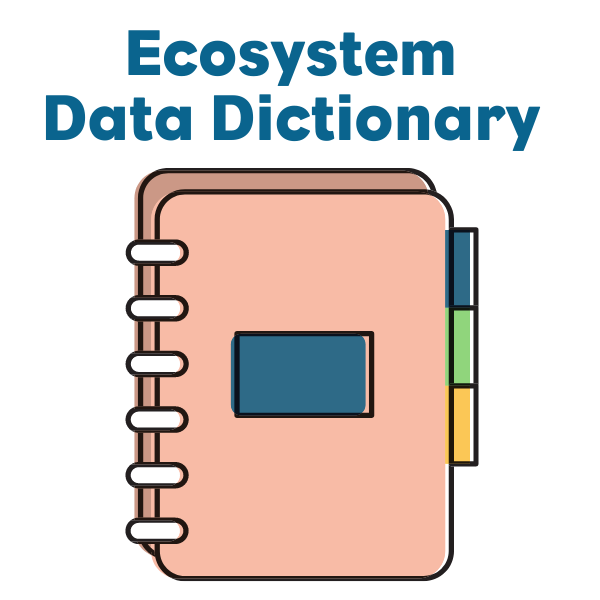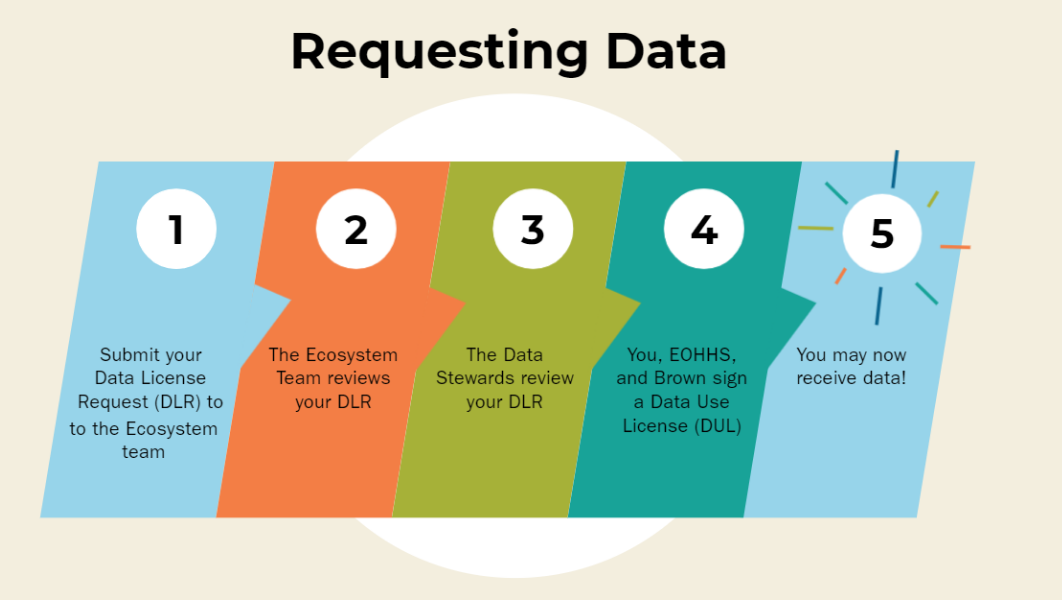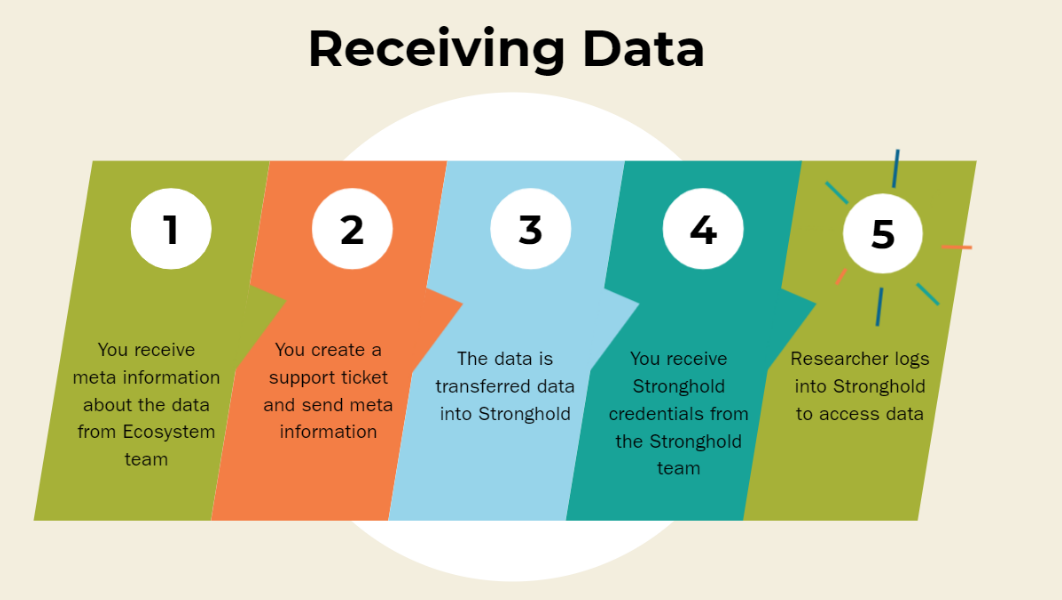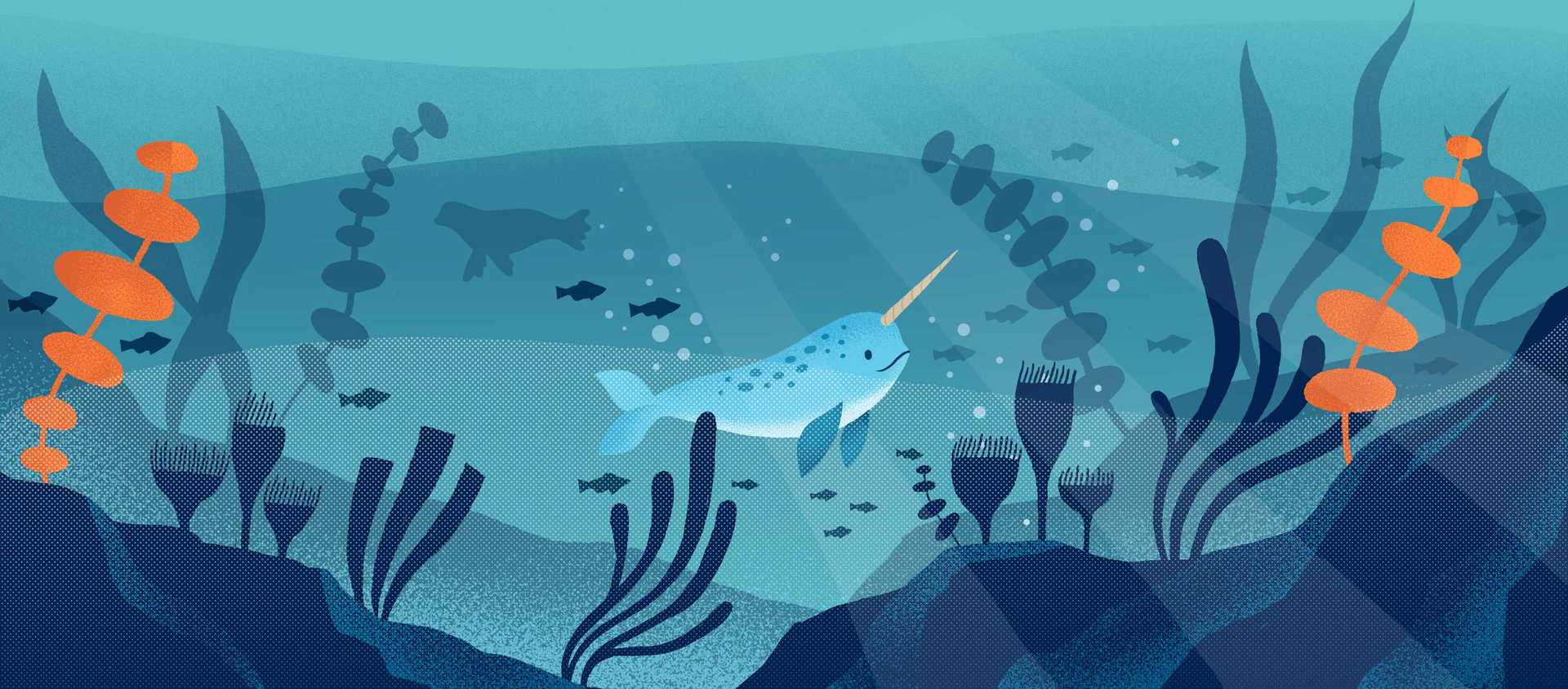Note this is an archived page
The Policy Lab left Brown University in March 2024. This page is left as an archival resource. For current information the Ecosystem, go to the RI Executive Office of Health & Human Services (EOHHS)'s About the Ecosystem page.
Welcome!
We are not slices of data. We are whole human beings, raised in families, rooted in communities, bearing our history. The Ecosystem is Rhode Island’s most comprehensive integrated data system. It includes over 15 data sources from over seven Rhode Island state agencies and nonprofit organizations, with protocols for securely linking and then sharing anonymized versions of data for research purposes.
This guide explains what is inside the Ecosystem and how Brown University researchers can request access.
Prefer to download or print this resource? Click here for a PDF!
What is the Ecosystem?
The Ecosystem is managed by the RI Executive Office of Health and Human Services (EOHHS). The Policy Lab works closely with Ecosystem staff to advise on how to develop, make available, and use data for research that could benefit Rhode Islanders.
The Policy Lab continues to work closely with the Ecosystem team both as a strategic thought partner and as an active research collaborator. For example, we are now tracking measures of social mobility as part of a place-based funding initiative in Central Providence.
What types of data are available?
At present the Ecosystem includes data primarily from the following Rhode Island agencies, with select datafiles going as far back as the 1990s:
- Department of Health (RIDOH)
- Department of Labor and Training (DLT)
- Department of Human Services (DHS)
- Department of Children, Youth, and Families (DCYF)
- Department of Behavioral Healthcare, Developmental Disabilities, and Hospitals (BHDDH)
This includes individually identifiable records such as historical Medicaid claims, eligibility data for SNAP/TANF, unemployment insurance records, and more. The Ecosystem also contains historical data from community organizations such as the Rhode Island Coalition to End Homelessness and ONE Neighborhood Builders.
These data can help explore questions on a number of topics across health, housing, social services, labor and more. A summary of the key information can be found on the EOHHS Ecosystem home page.

Data Dictionary
Click here to view or download the Ecosystem’s Table of Contents for their Data Dictionary!
It includes information on:
- Datasets
- Agencies and organizations, and
- Years available
What are the potential uses of Ecosystem data?
As elaborated below, the Ecosystem has a review process to ensure that any uses of data are completed responsibly and for the benefit of Rhode Islanders. This is the data of Rhode Islanders, after all, and they have a stake in how their own information is used.
To that end, there are two pathways to permissible use: (1) working on a topic already prioritized by the EOHHS; or (2) proposing a new topic, with a justification for how Rhode Islanders will benefit from the research.
1. The EOHHS Learning Agenda
The EOHHS has identified a set of priority research areas spanning economic opportunity, healthcare access and outcomes, and childhood. All study and focus areas must have race-explicit orientations. (See EOHHS guidance on Centering Racial Justice in Integrated Data.)
A summary of these focus areas is available on the EOHHS Learning Agenda website.
2. Propose a New Topic
We strongly recommend that you review the EOHHS Learning Agenda and consider tailoring your efforts to already identified priorities. However, you may have additional ideas for research. In such cases, you will propose a new topic (below elaborates how), with the central requirement being that you justify how the research will benefit Rhode Islanders. Note that requests related to the EOHHS Learning Agenda will be prioritized.
How do I request Ecosystem data?

Click here to see this request process as a printable checklist.
1. Submit your Data License Request (DLR) to OHHS.DataEcosystem@ohhs.ri.gov
- Read the Ecosystem’s learning agenda, data sources, and commitment to centering race in their research
- You are not expected to complete every section of the form! Guidance for completing the form is included in the templated DLR below.
- The DLR is project-specific, so for each new project a new request must be submitted.
- As you begin developing the DLR, please consult IRB3 resources here to determine if IRB review is required.
2. The Ecosystem Team reviews your DLR
- After you have submitted the draft DLR, you will collaborate with the EOHHS Ecosystem team1 to ensure that your research project is a good fit for what the Ecosystem data can offer and that it aligns with the race equity-driven mission of the Ecosystem.
- These review meetings are meant to increase your chances of a successful DLR submission and approval process.
- The Ecosystem team will also discuss what specific datasets and data fields might be most appropriate for your project, after which you’ll complete Part 2 of the DLR titled “Data Requested”
3. The Data Stewards review your DLR
- Once edits have been made, submit your DLR to OHHS.DataEcosystem@ohhs.ri.gov.
- The requestor will need to present the DLR at least at one of the monthly Ecosystem Data Stewards Group meetings2. More information about this review meeting can be found below under “What else do I need to know about the Ecosystem?”
- Each agency Data Steward whose data is being requested in the DLR will need to approve and sign the DLR.
4. You, EOHHS, and Brown's Research Manager sign the Data Use License
- This DUL template and the legal language therein has already been developed and approved by Brown and EOHHS, so please use the existing template (found below) for this step.
Click here to see this request process as a printable checklist.
What else do I need to know about the Ecosystem?
What is this DLR review meeting you referenced above?
Don’t stress — this review meeting is actually to your benefit! The DLR review presentations allows you to directly present your research goals and methods to the Data Stewards rather than relying only on the written DLR application. This is your opportunity to ensure that your project is fully understood, answer questions in real time, and to make your case of why your project supports the mission of the Ecosystem. The Data Stewards and Ecosystem Team are there to work with you!
Some other helpful information on this DLR review meeting:
- Meetings only happen every first Tuesday afternoon of each month; additionally, your DLR will need to be submitted one week prior to the monthly meeting, so plan accordingly.
- Using Ecosystem data requires approval from each of the Data Stewards for the dataset the agency governs. These monthly meetings are the opportunity for data stewards to sign off on these requests.
What are the costs for accessing Ecosystem data?
The Ecosystem team will determine the costs of a project based on the time required to scope the proposed project, refine the data requested to meet the needs of the project, execute the data sharing agreements, and to develop and send the data extracts, providing researchers supports as needed. The Ecosystem team expects researchers to include the costs to obtain data into grant proposals.
Research through The Policy Lab, on prioritized learning agenda topics, are potentially exempt from additional fees depending on the capacity and resources of the Ecosystem.
Specific questions regarding cost should be directed to the Ecosystem team at OHHS.datasystem@ohhs.ri.gov.
Why do I need to submit both a DLR and a DUL? And what’s the difference?
The Data License Request (DLR) and Data Use License (DUL) are forms created by the Ecosystem team as part of their data sharing and use process. The DLR is the form you will use to request access to Ecosystem data, which details what data is being requested and how it fits into the project. If that request is approved the next step is to establish the terms and conditions for use of the approved data through a DUL. For example, the DUL covers how data will be securely transferred, stored, and ultimately destroyed.
Why do I need to use the DLR and DUL templates linked below?
The templates are the result of months of work across several groups -- including us here at The Policy Lab, the Ecosystem team, Brown’s Office of Research Integrity, and EOHHS’ legal team --- to develop a standardized Data Use License (DUL) and Data License Request (DLR) specifically for Brown researchers. The documents below contain the approved legal language for collaborative work between the Ecosystem and Brown, and thus are the university’s official templates. In short, the required templates should make the request process easier and faster!
How does the DUL affect my research project?
It affects quite a bit actually, so please read it in its entirety! For example when publishing, your research team would give the Data Stewards Group at least a 45 day review period before your team submits a publication. This review period supports the collaborative nature of Ecosystem project work and maintains Brown’s commitment to open science! Here’s the breakdown of those 45 days:
- Data Stewards would have 30 days to review your research findings and offer comments to your research team.
- You and your team will have 15 days to respond to those comments.
Additionally, your publication would need to acknowledge that the findings in the publication do not necessarily reflect the opinion of EOHHS or the contributing organizations.
Again, this is only one example of what terms and conditions are included within the document. Please review the entire DUL for the official language and guidelines, and email dua@brown.edu if you have any questions or concerns at all about how these conditions affect you.
How do I receive the data?
 The Ecosystem team highly recommends that all analyses be performed in Stronghold, a secure, HIPAA-compliant computing environment provided by Brown’s Office of Information Technology (OIT). The Policy Lab team and the Stronghold team have worked with the Ecosystem team to establish a secure and efficient way to transfer data from The Ecosystem into Stronghold that requires minimal involvement from the researcher. This process can begin immediately after all legal documents are signed. Please follow these steps to initiate this process:
The Ecosystem team highly recommends that all analyses be performed in Stronghold, a secure, HIPAA-compliant computing environment provided by Brown’s Office of Information Technology (OIT). The Policy Lab team and the Stronghold team have worked with the Ecosystem team to establish a secure and efficient way to transfer data from The Ecosystem into Stronghold that requires minimal involvement from the researcher. This process can begin immediately after all legal documents are signed. Please follow these steps to initiate this process:
1. Work with the Ecosystem team to estimate the size of the data files to be shared.
- If the data files are larger than 5GB after compression, please contact The Policy Lab team (thepolicylab@brown.edu) to set up a separate process for large file transfer. The steps that follow do NOT apply.
2. Receive an email from the Ecosystem team with a link to the data files.
- The Ecosystem team will send an email to a designated recipient on the researcher’s team
- The email will include a link to all data files shared.
3. Email The Policy Lab team (thepolicylab@brown.edu) and the Stronghold team (support@ccv.brown.edu) the link received from the Ecosystem team
- The email will be automatically turned into a support ticket for the Stronghold team
4. The Policy Lab team and the Stronghold team transfer data securely into Stronghold.
5. The Stronghold team also creates credentials for the researchers to log into Stronghold.
6. The researchers can log into Stronghold to access the data transferred.
For more details, please contact Stronghold at support stronghold-help@brown.edu.
Templates
These are the templates you'll need to use to apply for data
DUL Template- Brown Officiated
DLR Template - Brown Officiated
Data Request Checklist
Glossary
-
The Ecosystem team includes the Ecosystem Director, Deputy Director, project manager, technical staff, and analytic staff. Together this team manages system oversight and supports daily operations. More information available here.
↩ -
The Data Stewards Group is a committee composed of representatives from each Data Provider with program, and data expertise. One designated representative (Data Steward) from each Data Provider has decision-making authority over the use of their Confidential Data to approve use cases and projects. More information available here.
↩ -
Institutional Review Boards . Click here for Brown's IRB website
↩
Contacts
To learn more about the Ecosystem, click here or email OHHS.DataEcosystem@ohhs.ri.gov
To get additional tips on building a successful DLR, email us at thepolicylab.brown.edu
Prefer to download or print this resource? Click here for a PDF!

